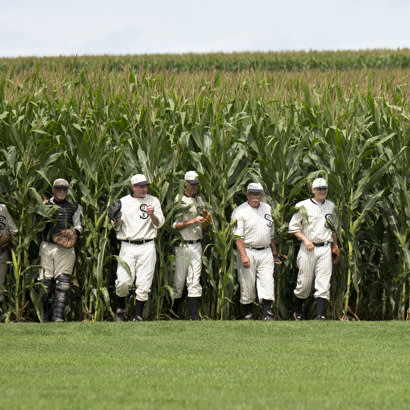
“Build it and they will come.” This is the most famous line from the 1989 film Field of Dreams. A mysterious voice tells a man to build a baseball field on his property with the assurance that the results will follow. This is a great premise for a movie, but not for an event. We’ve all heard that mysterious whisper to create the greatest event ever known to our community — the one that couldn’t possibly fail. We built it, we worked hard building it, and then. . . they didn’t come. Maybe a few did, but not what you anticipated. Dismayed and embarrassed, you either scaled back the event or scrapped future plans altogether.
All of us have been there — ALL OF US. Now, when your boss suggests you plan a community event, dread rises in your stomach as if you were being asked to climb Mount Everest with no guide and only a summer wardrobe. It doesn’t have to be that way. Event planning can result in successful events that leave your community with a great impression of your department. I’ve been in events management for more than a decade and I’ve earned my share of experience through embarrassment and sheer failure. Here’s how your events can be transformed from the source of your insomnia into community traditions.
Don’t just build it, plan it.
It’s one thing to have the idea of creating a 5K marathon, but an entirely different one to say “I’m planning one.” It is entirely possible to build a starting line and map out the course in two weeks and then, when the starting gun sounds, more startled birds take flight than people. When you plan a 5K, you start as early as possible, map out the course, develop a contingency plan for bad weather, come up with a catchy name and eye-catching graphics, and start looking for sponsors and potential attendees. There is no such thing as too early to start planning.
Define success early.
What has to happen for you or your boss to call the event successful? What is the goal? Plan every part of your event from this point of origin. Fully flesh out your idea early, don’t just piecemeal it. It keeps you on track and reigns in your imagination when it starts to go wild. Piecemealing is how chili cookoffs end up paired with obstacle courses (that actually happened once).
Start advertising early.
Eight months to a year before the event, you should begin advertising. This gets the word out about your event and begins to build excitement within the community. But don’t just drop that post and forget about it! Post regularly — at least once a month to keep the event fresh on people’s minds. This practice can even help attract potential sponsors and also gives you plenty of time to bring up your event at other departmental activities. At this point, you also should be doing some logistical planning and coming up with a spreadsheet of what supplies you’ll need. Always plan for extra supplies. It’s better to have it and not need it, than to need it and not have it.
Start small and gradually grow.
It is much better to plan an inaugural event that plans to sell a hundred tickets and receives a thousand requests than vice versa.
Test your audio and video (A/V)!
He who lives by the untested A/V dies by the untested A/V.
Have fun.
It’s really enjoyable to come up with new ideas and be creative. Create something you would like to attend or you would’ve loved as a child. Events are really hard work — harder than most people think — but they’re also really exciting and rewarding.
Just remember: In the realm of events, it’s not, “Build it and they will come,” but, “Plan it and they will come.”
Josh Taylor, CMP, CPRP is the events manager for City of Trussville, Alabama.
This blog post was written in partnership with the NRPA Young Professionals Network (YPN). Learn more about the NRPA YPN on NRPA Connect or on the YPN Facebook group.


